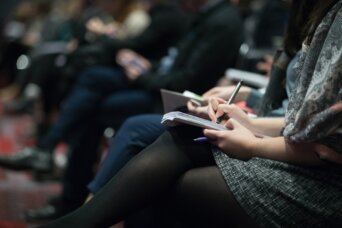- About
- Topics
- Picks
- Audio
- Story
- In-Depth
- Opinion
- News
- Donate
- Signup for our newsletterOur Editors' Best Picks.Send
Read, Debate: Engage.
| topic: | Freedom of Expression |
|---|---|
| located: | Jamaica, Brazil, Mexico, Costa Rica |
| editor: | Ellen Nemitz |
Attacks on freedom of the press often appear as a universal issue in Latin American politics. While they may be present in politicians’ discourses or even in law reviews - such as in El Salvador and Cuba, as recently reported by FairPlanet - or actually cause physical harm and murder of press workers, most countries in the region receive low scores in global rankings of press freedom.
According to Reporter Without Borders' 2021 report, Costa Rica and Jamaica are the only exceptions, both of which are the only Latin American nations with "green" labels regarding the respect of the press. Other countries are in worse situations, to different extents (Brazil, Colombia, Honduras and Mexico are the most dangerous for the media, according to their most recent report called Protection paradigm: making protection mechanisms work for Latin American journalists).
Although not commonly reported, the attacks toward journalists also have a gender bias. The newly released report "The impact of disinformation and political violence on the internet against female journalists, communicators and LGBT+,” produced by the Brazilian branch of Reporters without Borders in partnership with Gênero e Números (Gender and Numbers), brought up some concerning data.
Almost 42 percent of women that responded to the survey have already faced some kind of online violence due to their work activities. The most common attacks include swearing or hostile words, misogynistic or sexual assault, threats to physical integrity, as well as attacks to gender and sexual orientation and racism, and mostly happen on Facebook and Twitter.
The consequences of these situations affect both their personal and labour lives: nearly 15 percent of participants reported some level of mental health problems and, in many cases, the threats are directed also to their families. In order to protect themselves from online violence, almost 85 percent of female journalists who participated in the research (even those who have not experienced the violence themselves, but witnessed occurrences on colleagues), changed their behaviour on social media - one in every four female journalists had to close their social media accounts, for instance.
Meanwhile, the ‘Protection paradigm” report also assesses that, in the four mentioned countries, the “particularities of women journalists, who are extremely vulnerable in the region,” were not taken into account. “No measures are available that are adapted and specific to their needs. The protection plans ignore the forms of gender violence that affect women and the LGBTQIA+ population, and ignore the impact that threats and acts of aggression have on them and their families.”
To the researchers responsible for the report, the Brazilian journalist Vera Magalhães said that those who commit attacks "believe that the woman is more fragile, that she will be intimidated and move back in the face of this type of violent attack." However, in her opinion, female journalists are the ones who, nowadays, lead the denunciations of abuse, authoritarianism and "the absurdities committed during the pandemic."
On this World Press Freedom Day, celebrated on 3 May, the gender issue must also be in the spotlight, as well as the debate about social media regulation - which has just caught the headlines last week after Elon Musk’s statements about opening the algorithm code and the free speech debate on Twitter. Aside from the fuss on the billionaire's new acquisition, key topics that must be part of our agenda of discussions include the anonymity and the use of bots on social media, which makes tracking crime more difficult, the accountability of social media companies on online attacks and possible ways of guaranteeing freedom of speech while ensuring journalists’ safety.
Image by The Climate Reality Project

